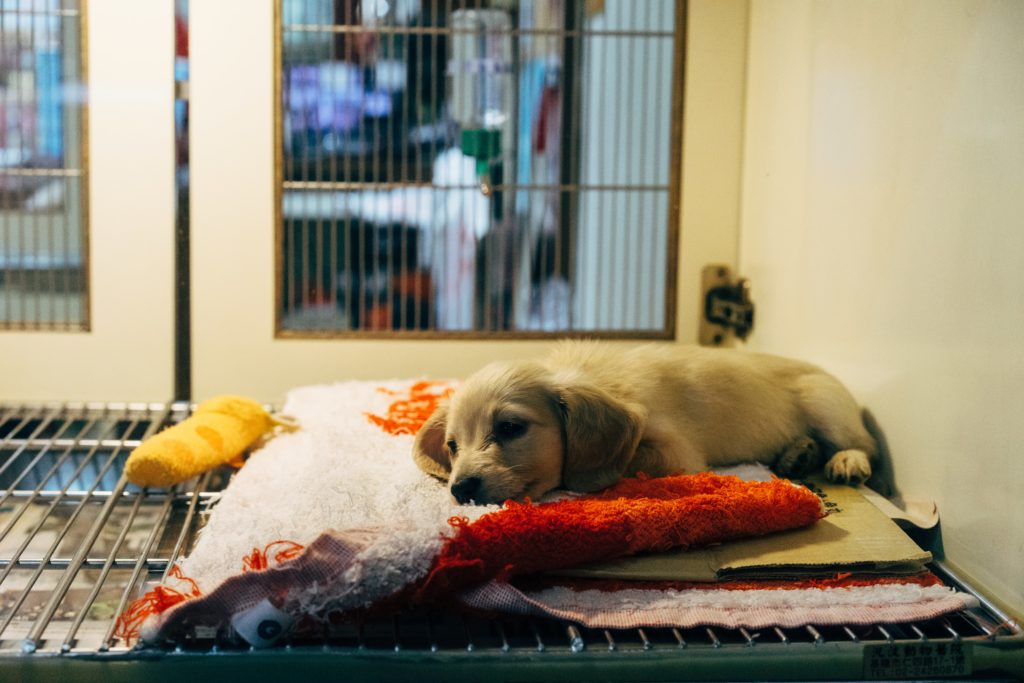COVID-19 occurring in pets is a topic circulating in the media – a myth that is detrimental to animals everywhere. Lara Van Rensburg from TEARS Animal Rescue has emphasised the dangers of this highly inflammatory subject and the dangers associated with it at a time when panic, fear and ignorance can lead people to treating innocent animals with cruelty.
“The fact is that while there have been reports of animals infected with the virus worldwide, most of these animals became infected after contact with people with COVID-19.
“A small number of pet cats and dogs have been reported to be infected with SARS-CoV-2 in several countries, including the United States, but this is so negligible that it has not been communicated or reported as being a danger to humans,” Van Rensburg told Cape {town} Etc.
It is important to note that the Coronaviruses affecting dogs and cats are different from the coronavirus which causes COVID-19 in people.
In very simple terms, coronaviruses that affect dogs or cats are from the Alpha-coronaviruses and the current SARS-Cov-2 Coronavirus, which causes COVID-19 in people, is a Beta-Coronavirus.
These are different diseases which occur in different species caused by different types of Coronavirus.
TEARS head vet, Dr Tania Heuer, is helping us debunk myths:
“To make sense of the confusion and hopefully to bring more clarity, I thought it best to start by explaining where the viruses come from, using the ‘family tree model.’
“As for each person, you have a family tree of your father or mother. For ease of reference, let’s use your father as the example; this starts with his parents, your grandparents (Family) and where your surname comes from traditionally, your father is thus the parent (Genus), and you and your siblings the children (species). Then for what you may one day become and do for a living (job) we’ll use as the effect you have on life (aka, the diseases).
“This is not to be taken literally it is just to help us understand and have a reference for the virus tree.”
The Corona Virus Family (Coronaviridae) is a large group of viruses that are common in animals.
Of this family, there are four genus’s that causes different diseases in different animals. They are called Alpha-coronavirus, Beta-coronavirus, Gamma-coronavirus and Delta-coronavirus (not to be confused with the delta strain of the current COVID infections, this is a separate matter altogether).
Of the four genus’s, only two are important that could spread to humans, namely the Alpha- and Beta- groups.
Below is a very good image that shows the virus family tree to help us understand:

The different diseases:
Both the Canine (enteric) Corona Virus (CCoV) and Feline Corona Virus (FCoV) belongs to the Alpha- coronaviruses.
In most dogs CCoV infections are sub-clinical and produce few clinical signs. Occasionally an infection may cause more severe symptoms, particularly in young puppies. The most typical sign associated with canine coronavirus is diarrhoea.
- In cats, FCoV is actually very common, but most of the time it does not cause any problems, other than perhaps mild self-limiting diarrhoea. Uncommonly, the virus mutates to a strain of Coronavirus which has the potential to cause disease. This mutated strain is the cause of a severe disease, known as feline infectious peritonitis (FIP).
- COVID-19 is a disease caused by the new SARS-CoV-2 Coronavirus, which belongs to the Beta- Coronaviruses. This virus causes severe acute respiratory syndrome in humans and is the second type of virus to that after the initial SARS outbreak in China in 2002.
Vaccines:
There is a dog specific vaccine available against this virus that is used in large parts of the world.
Being specie specific, this vaccine can only be used in dogs, for the CCoV infection prevention and not for the SARS-CoV-2 (Covid-19) infection.
The same is relevant to cats, a vaccine against FCoV is available in some countries but not in South Africa.
Given these differences between the virus species causing completely different diseases (Alpha vs. Beta), it is quite obvious that the vaccines for dogs and cats cannot be used to create immunity for your pets against COVID-19, nor used to protect you as they are not the same diseases.
COVID-19 Cross Infections – The current information available:
Can your pet be affected by COVID-19?
This may happen in rare instances. However, there is no current evidence that any animal or pet can infect humans with the new Coronavirus.
At this time, it does not appear that dogs become sick from the virus, but some cats may become mildly ill with respiratory or gastrointestinal symptoms.
There are many illnesses that may cause similar symptoms in pets. If you are concerned about you dog or cat, call your veterinarian.
Should a pet owner test positive for COVID-19 it is best to avoid direct contact with your pets to steer clear of possibly infecting them.
Read also:
SPCA appeals to the public: who shot Kommetjie baboon, Tabitha?
Picture: Unsplash

